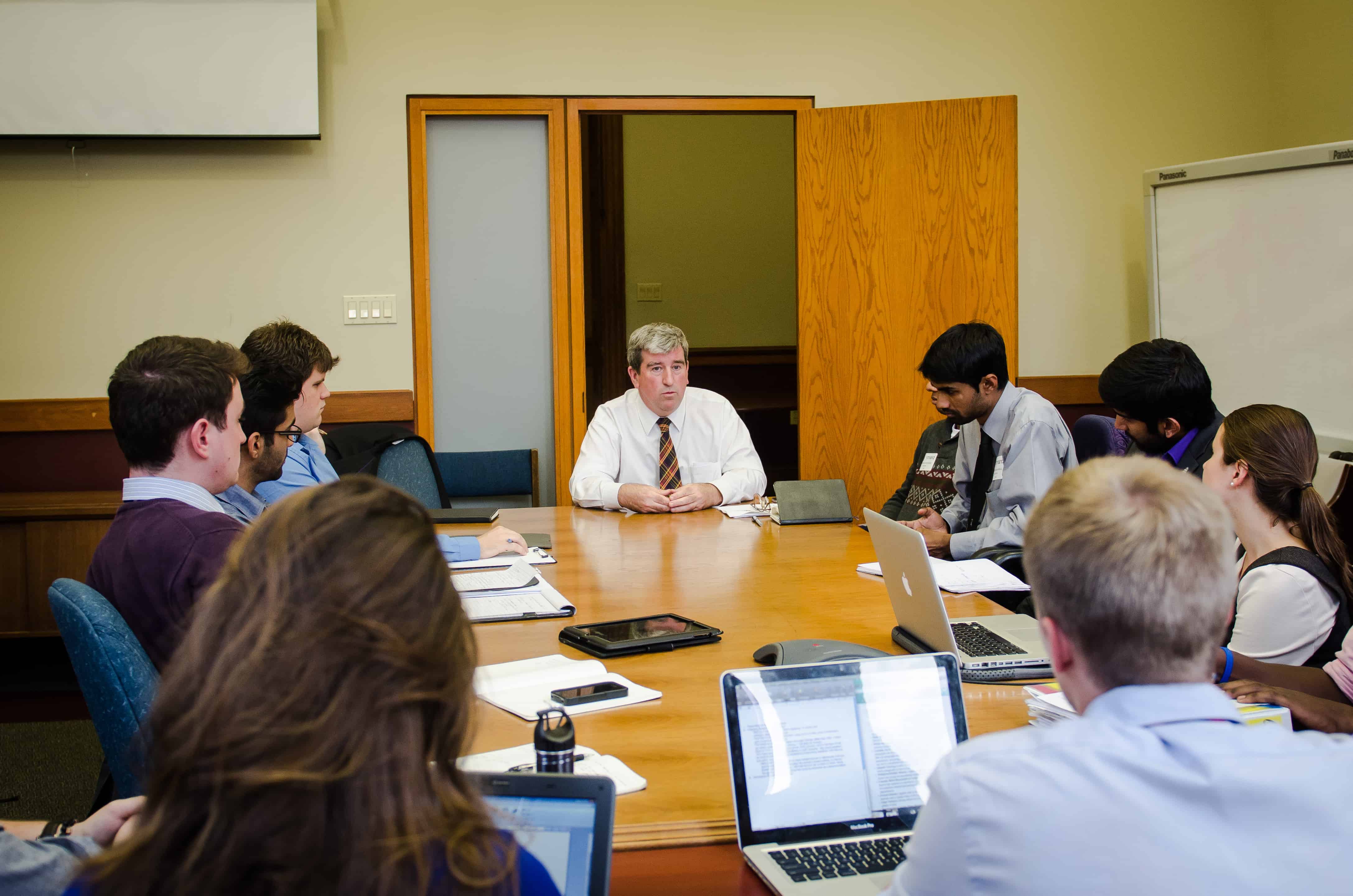The recent meeting between the St. George Round Table, campus student unions, and the minister to discuss the discussion paper proposed by the Ministry of Training, Colleges and Universities was part of a larger pattern of token consultation. The focus on an alleged rift between the UTSU and the Minister as the rationale behind his absence at the town hall on proposed changes to post-secondary education in Ontario takes away from the fact that the minister should be nervous to be on any campus right now, given how shaken administrators, students and faculty are by what he is proposing.
There have been serious criticisms raised by students, faculty, and administrators about the future of post-secondary education and the University of Toronto, and by appearing to dodge public meetings where these criticism can be discussed, the minister does our university and himself a disservice. That is the issue. Construing the minister’s absences at the Town Hall, where students, faculty and administration were present, as a fault on the part of the UTSU is an unnecessary distraction from the issues raised by the minister in his policy paper. Whatever problems arose between the minister and the UTSU after his appearance at the Scarborough campus — and the story changes depending on who is telling it — the minister should take every opportunity available to him to hear criticism from those who will be directly affected by the proposed changes. By the St. George Round Table hosting a smaller closed-door meeting with the minister and painting it as a consultation on par with an open forum involving students, faculty and administrators the St. George Round Table allowed the minister an easy escape from the prospect of facing a crowd critical of his plans.
During the St. George Round Table meeting, the minister dismissed student’s frustrations with the government’s handling of post-secondary education in the discussion paper, as painting him as the “big, bad minister.” This was not only patronizing but down-right offensive to students who have taken a lot of time to study the issues he raises in his proposal. When the government publishes a document outlining major changes for the future of post-secondary education, students are concerned. To dismiss this in such a simplistic manner is a great way to goad students into inflammatory dialogue that only serves to avoid issues in the proposal.
The meeting hosted by the St. George Round Table demonstrates that Minister Murray is not interested in a real public dialogue. The Arts and Science Students’ Union Executive is not interested in being a part of such token attempts to engage students in the dialogue around the future of education in Ontario. From what we have seen, the minister is more interested in a one-sided dialogue critiquing the budgets of universities while not answering the questions regarding the vision of post-secondary education expressed in the discussion paper. For example, when asked about the defunding of the work-study program at this meeting, Minister Murray gave no direct answer as to why the province could justify defunding such a vital program that gives money and employment directly to students. The province does not directly control the budget of universities but it can control maintaining programs like this. Given the minister’s negative view of university budgeting it seems he would know that cuts to the work-study program would ensue from the defunding of the program by the province. The defunding of the work-study program has come at the cost of student organizations on this campus and the minister has decided to conveniently shift the blame onto the university.
The Arts and Science Students’ Union is committed to engaging in productive dialogue with administrators. In recent years we have maintained a strong working relationship with our faculty’s administration. We sustain an open line of communication with the faculty to ensure that consultation occurs regarding structural or policy changes that will affect students. The conversations had between the Arts and Science Students’ Union executive and the administrators are not always pleasant, but the level of mutual respect is kept high. A similar approach in dealing with the proposals from Minister Murray needs to be taken. Arranging a closed-door meeting with Minister Murray in lieu of him attending a public meeting on our campus is adding to the distraction from the explanation the minister owes students for the province’s proposal for major changes in post-secondary education. The ASSU is looking forward to working with other campus groups dedicated to holding those responsible for the direction of our education accountable through open dialogue.


